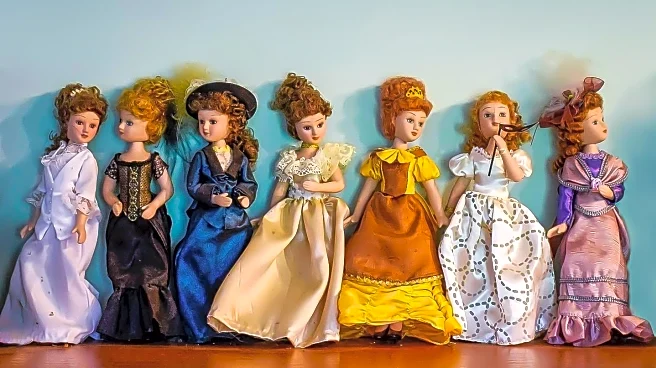What is the story about?
What's Happening?
Labubu dolls, created by Beijing-based toy manufacturer Pop Mart, have become the center of a viral controversy, with some parents and Christians on social media platforms like TikTok and X claiming the dolls are demonic. These claims suggest that the dolls are inspired by Pazuzu, a Mesopotamian demon known from 'The Exorcist'. Despite these allegations, experts like Eckart Frahm, a professor of Assyriology at Yale University, dismiss the resemblance between Labubu and Pazuzu, noting that the dolls lack the terrifying features associated with the ancient demon. The panic is reminiscent of past moral panics over cultural phenomena such as Dungeons and Dragons and Harry Potter, which were also accused of promoting satanic influences.
Why It's Important?
The controversy surrounding Labubu dolls highlights ongoing cultural tensions and the persistence of moral panics in society. Such incidents often arise during periods of social change or when traditional values are perceived to be under threat. The claims against Labubu reflect broader anxieties about youth culture and the influence of popular media. This situation underscores the challenges faced by toy manufacturers and cultural creators in navigating public perceptions and the potential for backlash. It also illustrates how misinformation can spread rapidly online, influencing public opinion and potentially impacting sales and brand reputation.
Beyond the Headlines
The Labubu panic serves as a case study in how modern myths and fears can echo historical patterns of moral panic. It raises questions about the role of social media in amplifying unfounded fears and the responsibility of platforms in managing such content. Additionally, it highlights the cultural dynamics at play when ancient myths are reinterpreted in contemporary contexts, often leading to misunderstandings and cultural clashes.
















